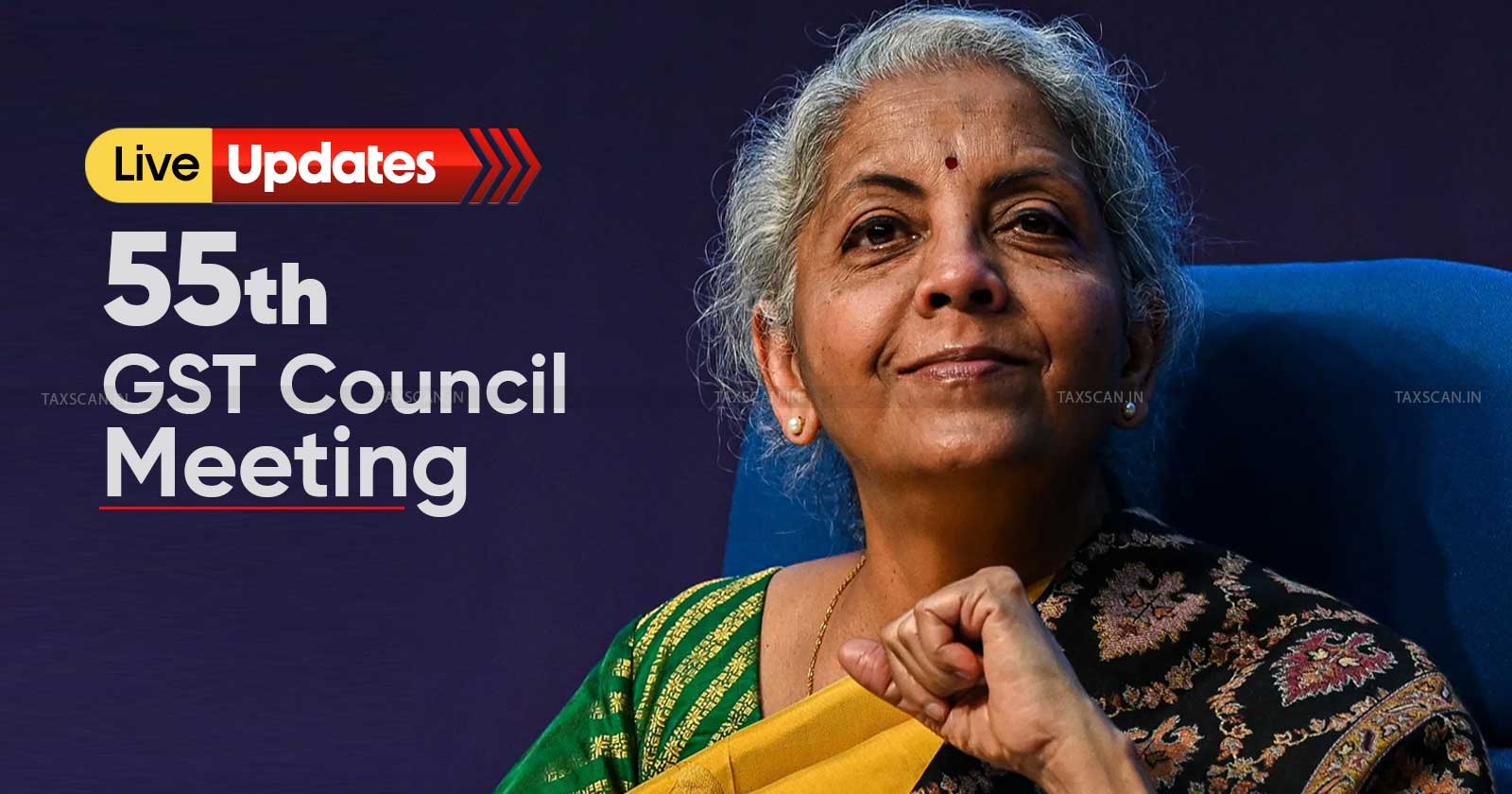The 55th GST Council Meeting, chaired by Finance Minister Nirmala Sitharaman, convened in Jaisalmer, Rajasthan, on Saturday to address several pressing taxation issues. While the meeting yielded some notable decisions, several highly anticipated topics, such as restructuring GST on insurance premiums, were deferred. This article delves into the key outcomes, postponed discussions, and their potential implications.
Deferred Discussions on GST for Insurance Premiums
The Current Tax Landscape
Currently, insurance premiums for individuals (excluding senior citizens) are subject to an 18% GST rate, a matter that has sparked significant public and industry interest.
Reports leading up to the meeting speculated on the possibility of exempting health insurance premiums for policies valued up to ₹5 lakh. Such a move would have marked a significant step toward improving the affordability of healthcare coverage in India.
Status of the Proposal
Despite the anticipation, the Council chose to defer discussions on this issue, citing the need for further analysis. Government sources suggest that the proposal is still under consideration and may be revisited in the future.
The postponement has left stakeholders, including insurers and policyholders, waiting for clarity on whether relief in GST rates on insurance premiums will be implemented.
55th GST Council Meeting: Rate Rationalization Postponed
Proposed Changes to Consumer Items
Another key item on the agenda was the rate rationalization for consumer items, including “sin products” like cigarettes and aerated beverages. The proposal, which suggests raising the GST on sin goods to 35%, was referred to a group of ministers (GoM).
This GoM, responsible for reviewing the GST rates for 148 items, has delayed its report submission. The Council expects the recommendations to be presented at its next meeting, further prolonging decisions on a topic that could significantly impact revenue generation and consumer behavior.
Implications
The delay has implications for businesses and consumers alike. While the government seeks to balance revenue growth with fairness in taxation, the continued uncertainty makes financial planning difficult for affected industries.
GST on E-Commerce Platforms: A Contentious Issue
The meeting also postponed discussions on GST regulations for e-commerce platforms, an area fraught with challenges due to the rapidly evolving nature of digital marketplaces.
Current Framework
E-commerce platforms in India face specific compliance requirements under the 55th GST Council Meeting framework for goods and services facilitated through their platforms. However, the tax laws have struggled to keep pace with the technological advancements and unique business models of the e-commerce sector.
Need for Clarity
Stakeholders in the e-commerce industry have repeatedly called for more streamlined and updated tax rules to address the complexities of online transactions. The deferment of this discussion leaves the sector in limbo, awaiting clarity on how GST will evolve to accommodate its needs.
Key Decisions from the 55th GST Council Meeting
Despite the deferred discussions, the GST Council reached decisions on several products and services.
GST on Popcorn
- Ready-to-eat popcorn (mixed with salt and spices): 5% GST (provided it is not pre-packaged).
- Pre-packaged and labeled popcorn: 12% GST.
- Caramel popcorn: 18% GST.
These changes reflect the Council’s nuanced approach to classifying and taxing food products based on their preparation and packaging.
GST on Fortified Rice Kernels
The Council agreed on a 5% GST for fortified rice kernels, irrespective of their end use. This decision aligns with the government’s efforts to promote fortified foods as part of its nutrition initiatives.
Revised GST Rates for Used EVs and Small Cars
The Council approved an 18% GST on the sale of old and used electric vehicles (EVs) and smaller petrol and diesel cars, up from the current 12%.
Rationale for the Change
This move is likely aimed at enhancing revenue collection and leveling the playing field between new and used vehicles. However, the increased tax rate may discourage buyers of used vehicles, potentially impacting the resale market.
Implications of the Decisions in 55th GST Council Meeting
The decisions made by the 55th GST Council Meeting reflect a mix of revenue considerations and policy objectives. However, the deferment of key issues like insurance premiums and e-commerce taxation suggests the Council is taking a cautious approach to ensure robust analysis before implementing changes.
Impact on Consumers
Consumers may see slight price changes in products like popcorn and used vehicles due to revised GST rates. The delay in decisions on health insurance premiums and consumer items means existing tax burdens remain unchanged for now.
Impact on Industries
Industries, particularly insurance and e-commerce, are left grappling with uncertainties. Insurers face continued challenges in selling health policies amid high GST rates, while e-commerce platforms await clarity on compliance requirements.
55th GST Council Meeting: What’s Next?
The deferred topics, including rate rationalization, GST on insurance premiums, and e-commerce taxation, are expected to dominate discussions at the next GST Council meeting. These issues have far-reaching implications for India’s taxation landscape, consumer spending, and industry growth.
Conclusion: 55th GST Council Meeting
The 55th GST Council meeting, while productive in certain areas, left key issues unresolved. The deferment of discussions on health insurance GST and rate rationalization reflects the complexity of balancing fiscal objectives with public and industry demands.
As the Council prepares for its next meeting, stakeholders across industries and consumer groups will watch closely, hoping for resolutions that promote fairness, economic growth, and ease of compliance.










